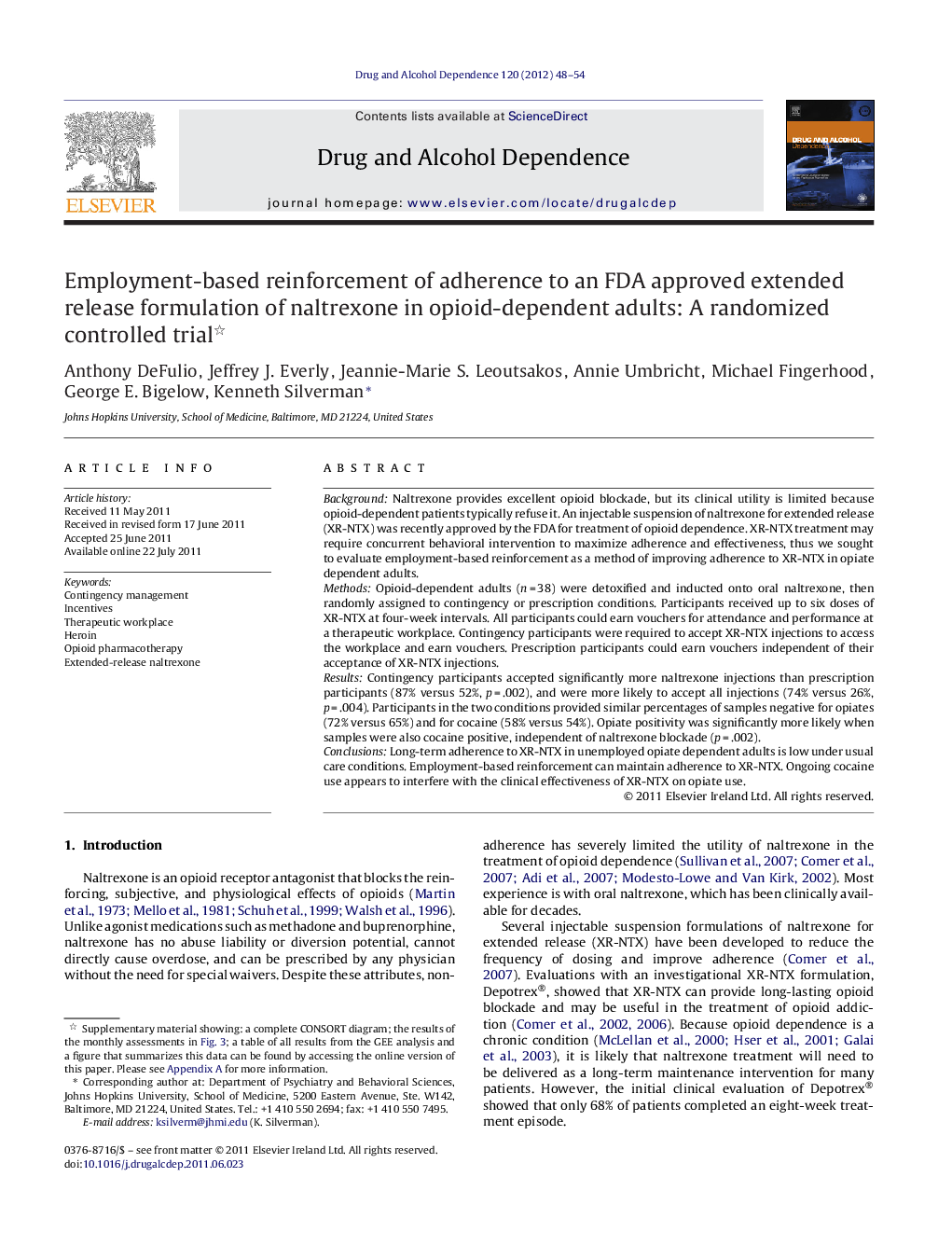| Article ID | Journal | Published Year | Pages | File Type |
|---|---|---|---|---|
| 1070184 | Drug and Alcohol Dependence | 2012 | 7 Pages |
BackgroundNaltrexone provides excellent opioid blockade, but its clinical utility is limited because opioid-dependent patients typically refuse it. An injectable suspension of naltrexone for extended release (XR-NTX) was recently approved by the FDA for treatment of opioid dependence. XR-NTX treatment may require concurrent behavioral intervention to maximize adherence and effectiveness, thus we sought to evaluate employment-based reinforcement as a method of improving adherence to XR-NTX in opiate dependent adults.MethodsOpioid-dependent adults (n = 38) were detoxified and inducted onto oral naltrexone, then randomly assigned to contingency or prescription conditions. Participants received up to six doses of XR-NTX at four-week intervals. All participants could earn vouchers for attendance and performance at a therapeutic workplace. Contingency participants were required to accept XR-NTX injections to access the workplace and earn vouchers. Prescription participants could earn vouchers independent of their acceptance of XR-NTX injections.ResultsContingency participants accepted significantly more naltrexone injections than prescription participants (87% versus 52%, p = .002), and were more likely to accept all injections (74% versus 26%, p = .004). Participants in the two conditions provided similar percentages of samples negative for opiates (72% versus 65%) and for cocaine (58% versus 54%). Opiate positivity was significantly more likely when samples were also cocaine positive, independent of naltrexone blockade (p = .002).ConclusionsLong-term adherence to XR-NTX in unemployed opiate dependent adults is low under usual care conditions. Employment-based reinforcement can maintain adherence to XR-NTX. Ongoing cocaine use appears to interfere with the clinical effectiveness of XR-NTX on opiate use.
